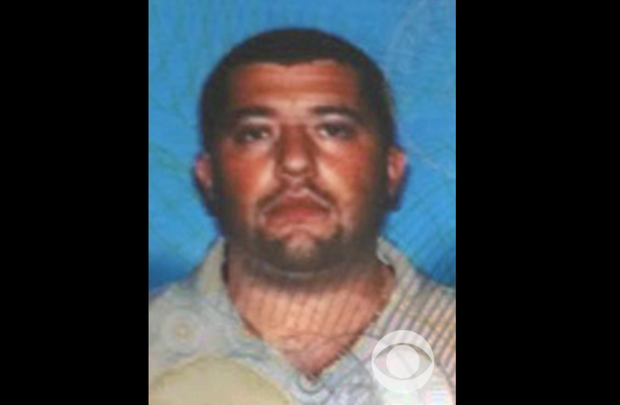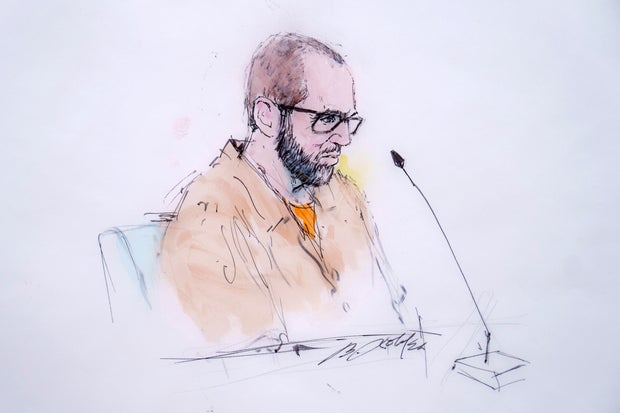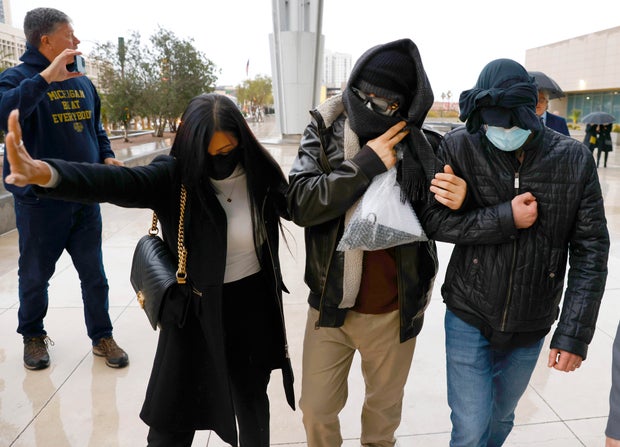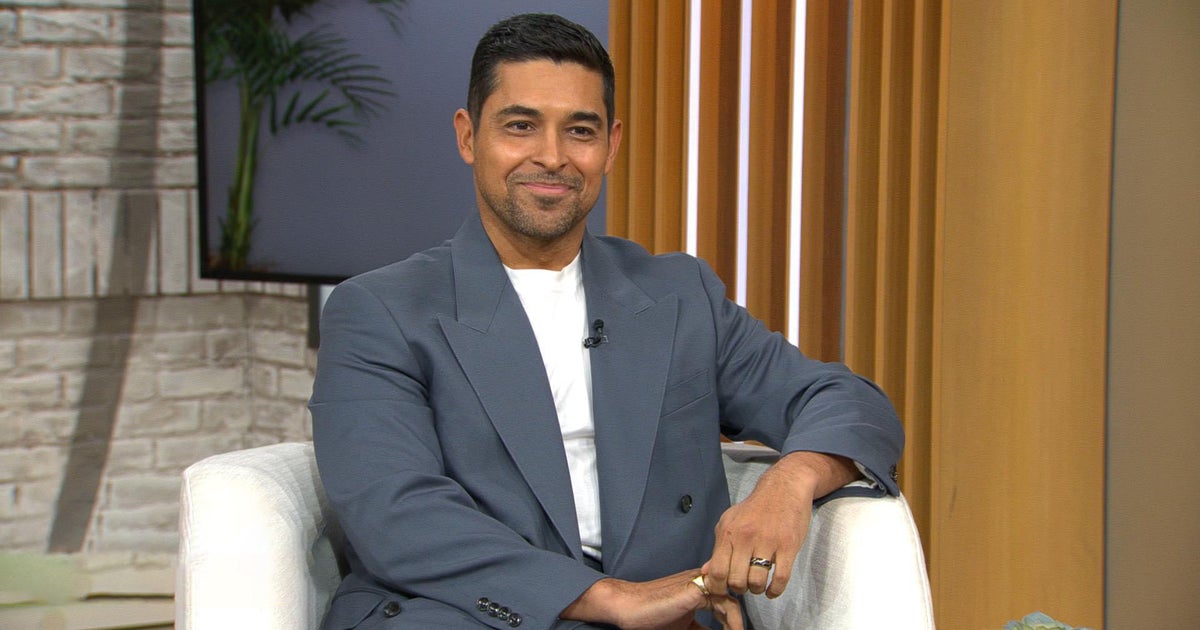Ex-FBI informant accused of lying about Bidens was called a "fraudster" in a prior case
Federal prosecutors were put on notice as far back as 2016 that Alexander Smirnov, the confidential FBI informant whose alleged lies about President Biden's business dealings fueled — and then damaged — a Republican impeachment effort, was a known "liar and a fraudster."
Smirnov, 43, was indicted last month for allegedly fabricating a story about President Biden and his son Hunter each accepting $5 million bribes from a Ukrainian energy company. It was a shocking turn of events, especially given that Smirnov's explosive allegations had been a key piece of the GOP's impeachment quest against Mr. Biden — and that Republican lawmakers had touted him as a highly credible witness.
A CBS News investigation reveals that serious doubts about Smirnov's credibility were raised almost a decade ago and are now prompting questions about why he remained on the FBI payroll as long as he did. CBS News has identified an earlier criminal case in which Smirnov provided information to the FBI that led to a prosecution. And in that earlier case, Smirnov was also accused of lying, just as he was about the corruption allegations against the Bidens.
"Having seen how much he lies, it's kind of surprising that he has been able to do it for as long as he has without anyone in the government stopping him," said Joseph Benincasa, a defense lawyer in that case. "They never should have used him again … it's shocking."
The FBI declined through a spokesperson to comment for this report.
Law enforcement experts told CBS News that the mounting questions about Smirnov's truthfulness should trigger an audit of every case in which he was involved.
"I think a review has to be done, either internally by the FBI or, more advisedly, by the Department [of Justice] to find out not only what happened here, but whether there is a systemic problem in the…supervision of informants," said Michael Bromwich, who is a former Justice Department inspector general.
That could require federal prosecutors to painstakingly re-examine every case Smirnov was involved in to determine whether they were tainted by his deceit, Bromwich said. Agents would likely have to make that effort known to defense lawyers and judges in those cases.
Smirnov's work for the FBI was a closely held secret until February, when the FBI indicted him for allegedly lying to agents about the conduct of President Biden and his son, Hunter Biden. The indictment claims that in 2020 he falsely told the FBI that Hunter Biden demanded millions of dollars for himself and then-Vice President Biden to shield a Ukrainian energy company from an investigation by the country's top prosecutor. Hunter Biden served on the board of the energy firm, Burisma.
According to the indictment, Smirnov told his handlers that Hunter Biden had promised to protect the company "through his dad from all kinds of problems." But FBI officials became suspicious of Smirnov's bombshell allegations when they realized the timeline of events he gave his handlers didn't add up. The indictment also revealed that Smirnov had connections to Russian intelligence services, raising the specter of a disinformation campaign.
The February indictment was not the first instance in which Smirnov was accused of lying in his representations to the FBI, CBS News has learned. Smirnov surfaced as a key secret witness in a sweeping racketeering case in California in 2015. In that case, the Justice Department brought charges against 33 defendants with ties to Armenian organized crime groups. Among the charges were money laundering, health care fraud and even a murder-for-hire.
Smirnov's information contributed to the case against a married couple, Tigran Sarkisyan and his wife Hripsime Khachatryan, charged with conspiring with others to use fake identities to collect tax reimbursements from the federal government. The couple eventually pleaded guilty to a single count of racketeering in May 2017. In a 2018 sentencing memorandum, the couple's lawyers flatly accused Smirnov of deceit.
"The [Confidential Human Source] was known to the United States as a liar and fraudster," the sentencing brief states.
A footnote in the document states that the government was provided with the notes of their private investigator's interview with a close associate of Smirnov who repeatedly called him a "liar."
Benincasa, a lawyer for Sarkisyan and Khachatryan, said his clients' case raises serious concerns about the FBI's handling of its confidential informant.
"Confidential informants will say things to their handlers to, you know, they're trying to get a benefit. Some of them are even being paid. They want to be useful," Benincasa said. "But this one was somebody who was really blatant in his lies."
"In this case," he said, "the FBI did not seem to be interested in reining him [in]."
A lawyer for Smirnov, David Chesnoff, said in a statement, "Our client stands behind his years of service to the Department of Justice and the United States." Smirnov has pleaded not guilty.
Criminal informants are rarely "pillars of society," Steve Laycock, a former FBI assistant director of the bureau's intelligence division who was in charge of its confidential human sources program, told CBS News. They have access to information that is valuable to law enforcement precisely because they inhabit a world of criminals and illicit characters.
Bromwich agreed that an informant's murky background can make it challenging to navigate their tips.
"It's a very tricky and difficult business," he said. "But it's really important for the FBI or any other law enforcement agency to do whatever they can to verify the accuracy and truthfulness of the information they obtain."
Laycock also said the FBI always has an obligation to take careful notice — and possibly take action — when it is alerted to potential problems with its informants.
The story behind the earlier accusations against Smirnov followed a twisted tale involving charges and counter-charges of fraud and deceit among a cast of unsavory if colorful characters.
Smirnov, a dual citizen of Israel and the U.S. who grew up in Soviet-era Ukraine, had insinuated himself in the Armenian community and befriended Sarkisyan and Khachatryan, Benincasa said. But when they were indicted, the couple quickly surmised that Smirnov was a government plant, according to their lawyers. Sarkisyan and Khachatryan claimed that they had their own dealings with Smirnov entirely unrelated to the underlying racketeering charges, and they told their lawyers they could prove he was a liar and swindler.
In 2018, as part of an effort to gain leverage in the sentencing of their clients, the defense lawyers filed a civil complaint on Sarkisyan and Khachatryan's behalf against Smirnov. In it, they alleged breach of contract and fraud.
The lawsuit used Smirnov's real name but did not identify him as the confidential informant in the criminal case because that information was covered by a protective order. Nevertheless, the government knew it was the same person.
Benincasa believes federal prosecutors realized they had a problem. According to Benincasa, the prosecutors had originally indicated they would be seeking a 10-year sentence as part of any plea deal. But after the lawsuit was filed, the government softened its position. Benincasa said he believes prosecutors wanted to avoid seeing Smirnov deposed in the civil case and possibly have his identity as an informant exposed. In the end prosecutors asked for 21 months, an unusually sharp reduction from the original 10 years that Benincasa says they were seeking. The judge ultimately sentenced the couple to 15 months.
Today, Sarkisyan and Khachatryan are out of prison, living and working in Los Angeles and trying to put the whole legal ordeal behind them. Meanwhile, Smirnov is sitting in a federal correctional institution awaiting trial for his alleged lies to the FBI.
In the criminal indictment of Smirnov, prosecutors point out that his FBI handler "admonished" him that "he must provide truthful information to the FBI" on more than 20 occasions since becoming a confidential informant in 2010. Benincasa said his clients are considering filing for a review of their case in light of the revelations about Smirnov.
Pat Milton and Clare Hymes contributed to this report.






